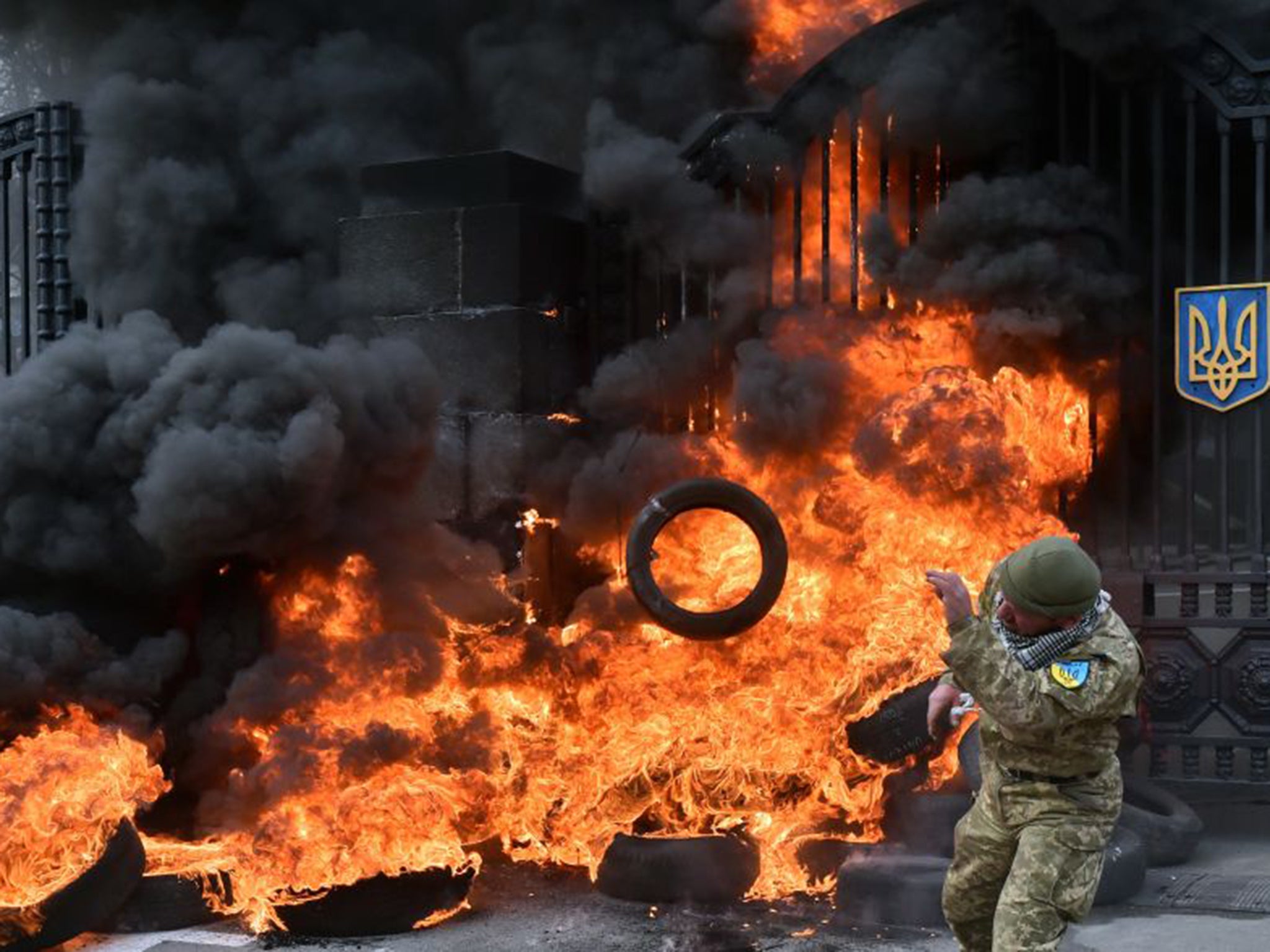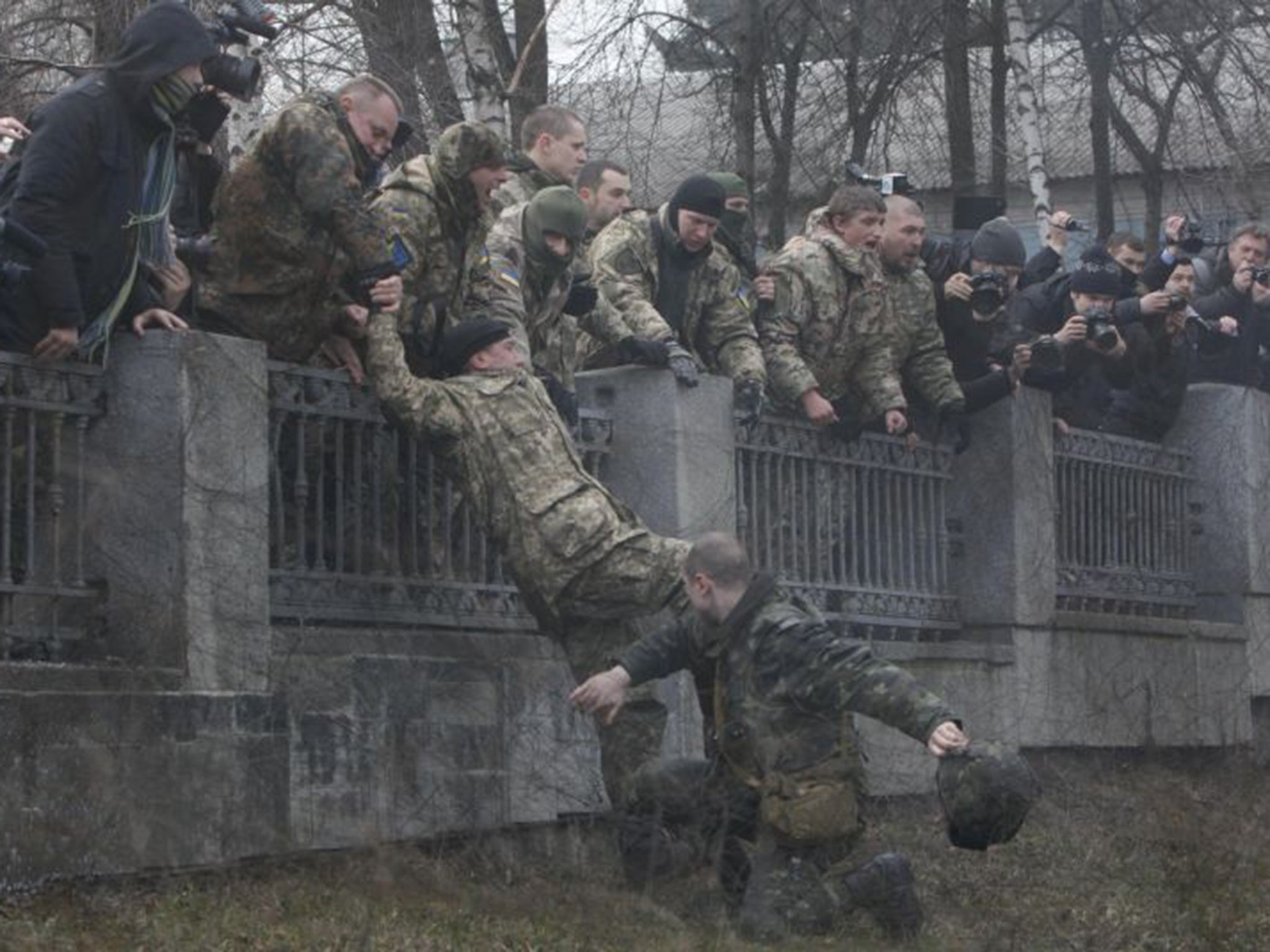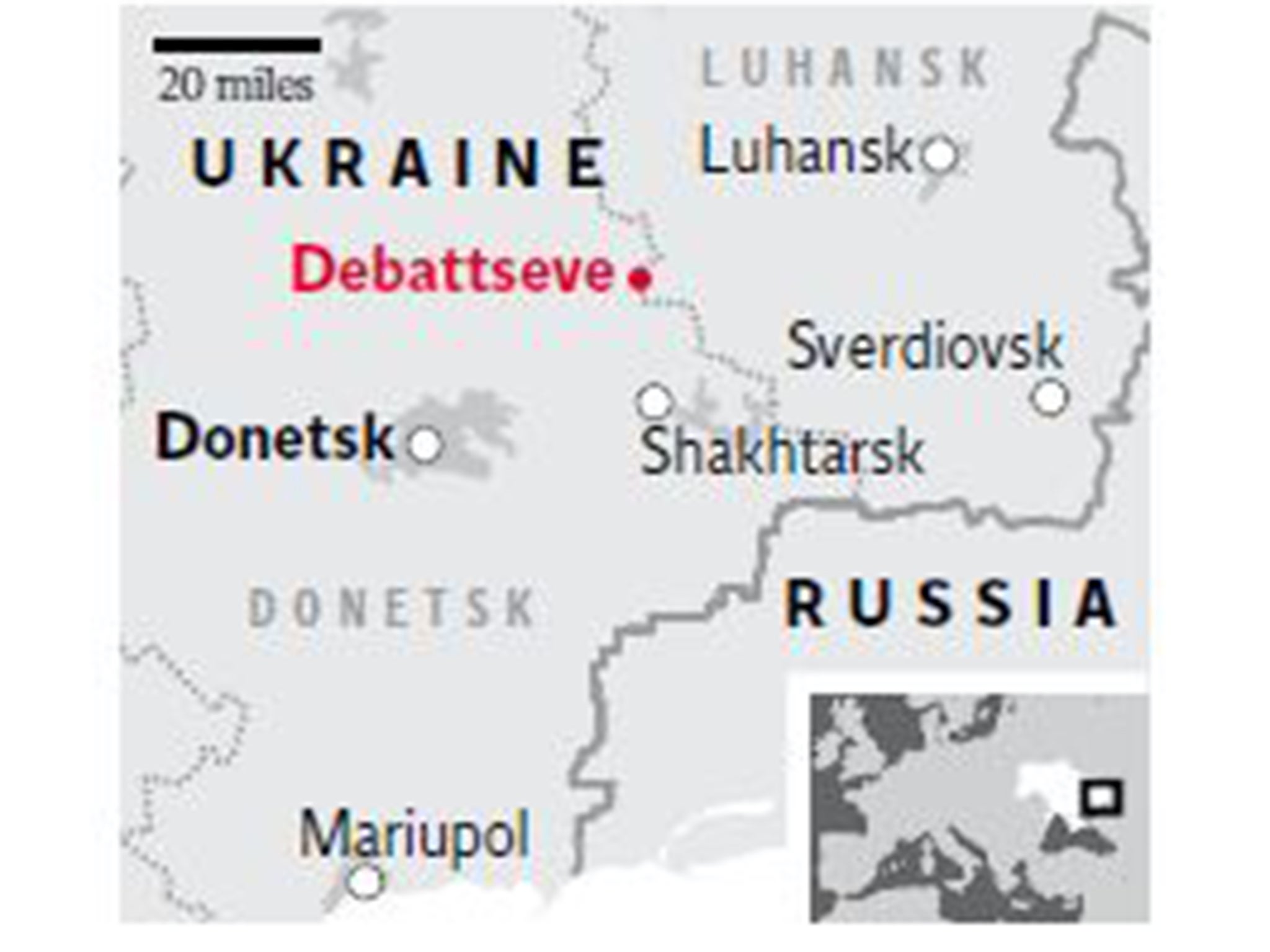Ukraine crisis: A dangerous shift in tempo as rebels bolster troop numbers against government forces
With civilians in east Ukraine stuck in a nightmarish bottleneck of tit-for-tat shelling, the leader of the Russian-backed rebels has announced a general mobilisation to bolster troop numbers

Your support helps us to tell the story
From reproductive rights to climate change to Big Tech, The Independent is on the ground when the story is developing. Whether it's investigating the financials of Elon Musk's pro-Trump PAC or producing our latest documentary, 'The A Word', which shines a light on the American women fighting for reproductive rights, we know how important it is to parse out the facts from the messaging.
At such a critical moment in US history, we need reporters on the ground. Your donation allows us to keep sending journalists to speak to both sides of the story.
The Independent is trusted by Americans across the entire political spectrum. And unlike many other quality news outlets, we choose not to lock Americans out of our reporting and analysis with paywalls. We believe quality journalism should be available to everyone, paid for by those who can afford it.
Your support makes all the difference.It was never likely to be quiet in east Ukraine yesterday, after the breakdown of peace talks to which neither side appeared particularly committed.
It lived up to expectations, with towns on either side of the battles between rebel forces and besieged government troops suffering intensive shelling. The fiercest battles were concentrated in the town of Debaltsevo, around 34 miles to the north-east of Donetsk. It lies between the rebel-held cities of Luhansk and Donetsk – a bottleneck where rebels could soon seize victory against Kiev. Government forces have been surrounded by rebel forces to the west, south and east, ever since they regained the town in August. Now, however, newly confident rebels have made a push to totally surround the Ukrainian troops.
Debaltsevo has thus become intolerable for those poor, immobile, elderly or simply stubborn civilians who remain. Some 2,000 residents are thought to have left in the past two days, despite the town having been without water and electricity for more than a week. Residents rely on the few volunteers who dare to travel the main road into Debaltsevo for evacuation and supplies.
Government spokesman Andriy Lysenko said yesterday that recent assaults on government positions at Debaltsevo had been repelled and, for the moment at least, Kiev still was in control of the town. “The units that have arrived in support of our troops in Debaltsevo are counter-attacking and denying the enemy the opportunity to complete the encirclement,” he said.
Separatist fighters burst through Ukrainian lines last week in the village of Vuhlehirsk on the road west of Debaltsevo, gaining access to a ridge overlooking the highway from the town.
Ukrainian tanks were seen yesterday shooting from open fields at the treeline on that ridge. Rows of trenches near a bridge nine miles to the north of Debaltsevo yesterday suggested that Kiev may have a fallback position to surrender the town.
The fighting came as Russian-backed rebel leader Aleksandr Zakharchenko introduced a general mobilisation of citizens of conscription age within his “Donetsk People’s Republic”. “We intend to enlist enough more men so that our army reaches 100,000,” he announced. The first wave would be voluntary, he continued, but might become mandatory should numbers prove insufficient.
If implemented, the mobilisation would represent a significant increase in the rebel’s fighting potential. Commanders have suggested to The Independent that the current strength of both Luhansk and Donetsk rebels is comparable to the Ukrainian side.

Mr Zakharchenko’s announcement is likely to have two immediate effects: increased migration of conscription age men from the Donetsk region; and a lower take-up for Ukraine’s own mobilisation drive. Many of Mr Zakharchenko’s recent announcements appeared to have been designed to discourage young Ukrainians from taking up the draft. Just a week ago, he claimed that rebels would no longer be taking any prisoners in an apparent attempt to instil fear into wavering individuals.
The Ukrainian mobilisation wave, meanwhile, has not been going well. Government sources revealed that only 10 per cent of 75,000 have responded to the draft, the lowest number in any of the previous mobilisation. Yesterday, fierce protests broke out in the capital, Kiev, with fighters from the Aydar Ukrainian volunteer battalion burning tyres at the entrance to the Ukrainian Defence Ministry during demonstrations against the possible disbandment of their battalion.
The first month of 2015 has been an emotional and turbulent one for Ukraine, with rebels gaining an important psychological victory at Donetsk airport, and by pushing the territorial demarcation lines elsewhere.
Speaking to The Independent, “Shiba”, a deputy commander of a battalion within the Vostok brigade, confirmed that the rebels planned to drive government forces hard beyond the edge of Donetsk and Luhansk administrative regions, and that plans existed for them to do so. “The order to fully engage has not yet been received,” he warned.

Elsewhere, the rebel stronghold of Donetsk came under sustained shelling again. It was estimated that 15 civilians had been killed over the weekend. Kiev said five soldiers had died within 24 hours in the eastern regions.
Even as Vladimir Putin described his “extreme concern” at events in the east yesterday, Barack Obama appeared to step closer to providing arms to Kiev. A US military official told the Associated Press that Washington was considering sending defensive lethal aid, potentially including anti-tank missiles and armoured vehicles.
The German Chancellor, Angela Merkel, reiterated her opposition to arming Ukraine. “It is my firm belief that this conflict cannot be solved militarily,” Ms Merkel said following a meeting with her Hungarian counterpart, Viktor Orban, in Budapest.
Join our commenting forum
Join thought-provoking conversations, follow other Independent readers and see their replies
0Comments